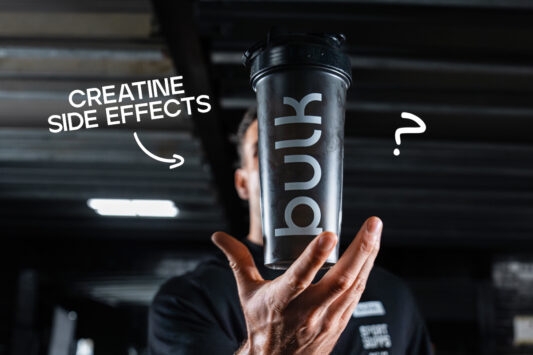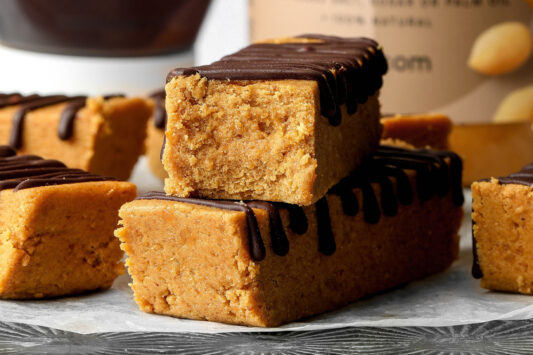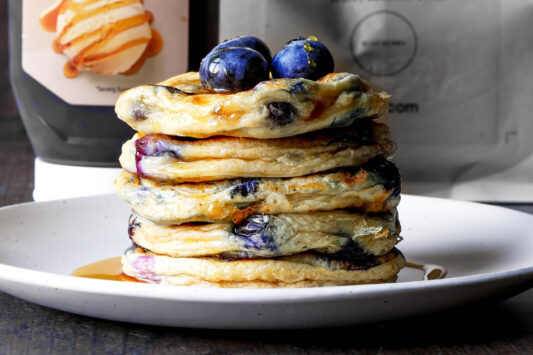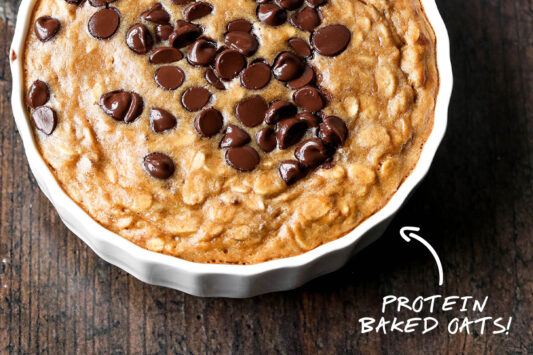With the way that the national diet has been going for the past few decades, we’re scrambling to fix our sugar problem.
We consume far too much sugary junk as a society, and it’s starting to pay off with all kinds of lifestyle problems, from obesity to diabetes and beyond. We’ve built up a culture of over-eating and hyper-palatable foods.
It’s no surprise that we’ve tried to fix this in a wide variety of ways. One of those is sweeteners – a sweet, low- or zero-calorie ingredient that makes food taste good without the metabolic problems that sugar can bring.
Today we’re going to talk about Stevia – a plant-based sweetener that is playing a large role in improving our diets – and we’re going to explain how it can improve your life, and why we use it in our supplements.
Sugar, Satiety and Side-Effects
Sugar isn’t bad by itself – it doesn’t make you fat and isn’t as “addictive as cocaine”. The reality is that we just like it too much and it usually causes us to skip past moderation and go straight to over-eating. When you combine sugar with over-eating, you do run into problems like insulin resistance and increased chances of gaining too much weight.
This is also a problem because sugar is actually very calorie dense. As a carb, it’s only 4 calories per gram, but the amount of satiety and volume that 100grams of sugar provides is actually very low compared to the same amount of complex carbs, protein, or fats. This is even more true if you’re drinking it in the form of a syrup-based fizzy drink.
There’s a lot of misinformation about sugar out there, but it is associated with reduced levels of dietary quality, increased levels of obesity, it has a direct role in diabetes, and is associated with countless other problems. Sugar isn’t always the cause, but a high-sugar diet is usually a bad diet.
What is Stevia?
This is where we look to sweeteners like stevia.
Stevia is our favourite form of sweetener – it’s totally natural, it provides great flavour, and it is well-researched. There’s plenty of science on the health and safety of stevia, all for almost-zero calories.
Stevia is simply an extract from the leaves of the stevia plant, which produces a hyper-sweet compound known as a glycoside. These aren’t digested by the body, so you taste them but you never absorb them or use them. They just pass straight through you – in the same way that water or fibre might.
Is Stevia Really Natural?
Stevia is made from plant leaves – it is the most natural thing in the world. This doesn’t make it better or worse, since something being natural doesn’t make it good or healthy, but if you’re concerned about artificial foods – this isn’t one.
Stevia is a type of plant that grows in Asia and South America, and the sweetener is made from the leaves.
Is Stevia Safe?
Absolutely.
There have been plenty of discussions on Stevia and its safety/health effects. The European Food Safety Authority spent a lot of time and effort with an in-depth analysis of the sweetener and concluded with the statement that it’s safe for human consumption. Beyond this, the science shows that Stevia has positive effects on cell health, blood sugar, and kidney health.
The only real risks when consuming Stevia is taking too much – as with anything else. If you consume huge amounts of stevia (more than 25mg/kg of your body weight per day) then you may experience some digestive problems or other negative effects, but this is far more than you’ll find in any of our products.
Simply put, moderation is key. In moderate amounts, stevia is actually actively-healthy, with a beneficial antioxidant effect and the negative effects of stevia don’t show up until you’ve got way into overconsumption. This is what you should avoid regardless of whether it is a full-sugar or sweetener-based product: bad dietary habits are the problem, not sweeteners.
Safe to say, the levels found in protein powders and other sweetened health products are nowhere near a dangerous dose. With stevia being roughly 200-300 times sweeter than sugar, the content is much lower and the health effects are much better!
Different Types of Stevia
Stevia comes in many forms – some of which you can use at home, and others you’ll find in sweetened products.
Stevia Extract Powder
This is probably the most common form – especially in dietary supplements – and for good reason.
You can buy this powder online with ease, and it can be used as an alternative to sugar. As mentioned above, be careful with your dosing if you’re using the powder itself – if you mega-dose, you may experience some side-effects. Be sure to check guidelines on stevia use and always use a high-quality stevia product.
Stevia Drops
A less-common but handier solution, stevia drops are an easy way to get stevia into your morning coffee or afternoon tea – or anything else you drink. If you’re trying to keep your sugar low, these drops can be a convenient way of getting around the sugar problem without the calories.
Also, pretty handy if you put way too much kale or spinach in your protein shake and it tastes like leaves. We’ve all been there.
Stevia Liquid
Similar to drops but at a much lower concentration, stevia liquid is a dilute solution of stevia in water or other basic liquids. It’s an easy way to flavour for baking or other sweetened dishes.
As with drops, you want to monitor your stevia intake. While a dilute stevia liquid isn’t going to be particularly strong, you should learn how much is appropriate for your intended use. This is probably going to be less effective for your coffee since it’s less concentrated.
Stevia Plant
Don’t eat the plant: it’s healthy, but expensive and inconvenient.
We’re not sure how you plan on using the plant in your day-to-day life, but we recommend moderation as with all other forms. The leaves themselves are nowhere near as sweet as the extract – and they’re balanced by the natural fibre of the whole plant – and the plant costs far more per serving than the powder.
Stevia plant and leaf are most commonly used for making homemade stevia, but we really don’t recommend this. Firstly, it’s a lot of effort to get the exact same product you’d get from a powder/extract at a much higher cost to your time and money. Secondly, it’s far less reliable and measured than just buying the powder.
Where Can You Buy Stevia?
Stevia is gaining popularity and you can see this in its availability.
You can buy stevia online through multiple vendors, but the important part is getting a high-quality product. Our stevia powder extract is a 97% Reb-A version (the sweetest, most antioxidant form of stevia), with up to 400 times the sweetness of sugar.
We also ensure that there’s nothing else in our stevia plant extract. While you might see low-quality powders on the market that often mix stevia with dextrin or other types of sugar, our powder is certified 100% stevia. After all, if you wanted calories and carbs, you’d probably just use sugar.
With a highly-soluble, low-GI version of Stevia, our extract is all about premium quality at great price.
Adding Stevia to Protein Powder
This is the crucial point for us: stevia for protein is a fantastic alternative to sugar for a few reasons.
Firstly, this simple, sweet powder is mixed into protein powders to ensure that the sugar content is low, and you get as much protein as possible for your money. This is what we all use protein powders for, so getting a better ratio of protein to extras is key to a good product.
Secondly, protein powder is the perfect place to put stevia: it’s taken in relatively small doses, it provides plenty of other food for your stomach to digest, and it dilutes your overall stevia intake. This means that it’s almost impossible to get too much stevia from protein powders.
We use stevia extract in our protein powders because:
- It’s a fantastic, zero-calorie sweetener that allows us to provide the best bang for your buck in taste and protein content
- The alternative – a high-sugar product – comes with some of the most serious side-effects and health concerns today
For us, stevia is a clear choice for honesty, creating responsible protein powders, and making sure that our products provide the best value without health concerns. Stevia lets us do all of this while also providing great health benefits.
Related articles
Eager to learn more? We believe that every person, with support, has the right to transform their lives through fitness. That’s why we’ve put together hundreds of articles with expert advice, all to help you on your fitness journey.
















